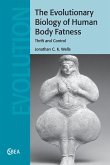Determining the precise timing for the evolutionary origin of groups of organisms has become increasingly important as scientists from diverse disciplines attempt to examine rates of anatomical or molecular evolution and correlate intrinsic biological events to extrinsic environmental events. Molecular clock analyses indicate that many major groups are twice as old, or more, than a literal reading of the fossil record attests, implying that the fossil record is incomplete. Few paleontologists agree that the fossil record is inadequate, arguing instead that our understanding of the molecular clock is far from ideal. Telling the Evolutionary Time: Molecular Clocks and the Fossil Record represents a discussion between molecular biologists and paleontologists, in which they investigate the significance of competing sources of data, explain the nature of molecular clocks and the fossil record, and strive to develop compromise models that incorporate contradictory opinions. These are presented as a series of case studies dealing with many of the most important groups of complex organisms, such as protists, land plants, flowering plants, complex animals, chordates, vertebrates, tetrapods, and modern birds. Bringing fresh insight and various perspectives to a complicated argument, this book assembles all sides of the debate into one comprehensive text. It is a significant volume for research scientists and advanced students across the field of evolutionary biology.
Hinweis: Dieser Artikel kann nur an eine deutsche Lieferadresse ausgeliefert werden.
Hinweis: Dieser Artikel kann nur an eine deutsche Lieferadresse ausgeliefert werden.








